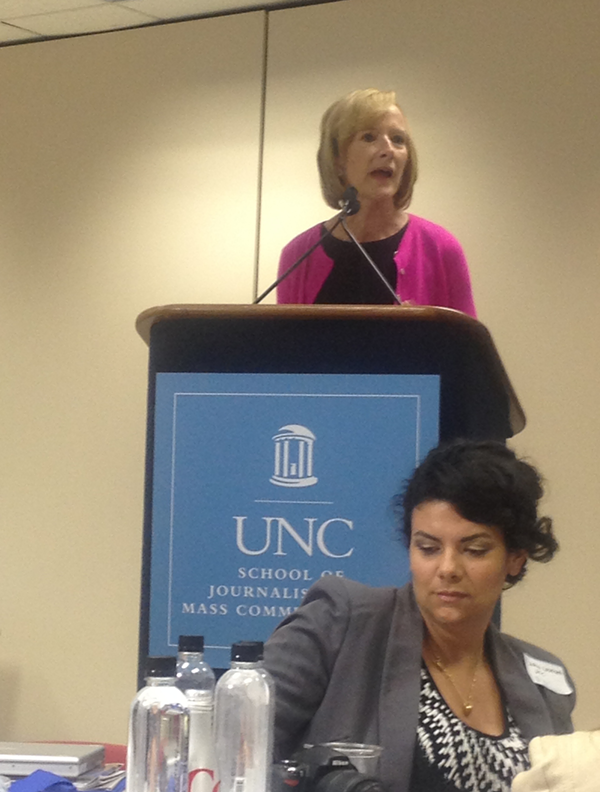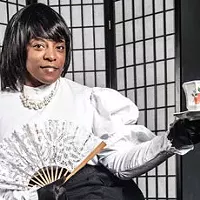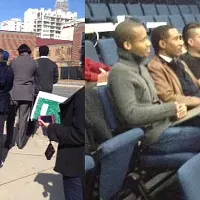Tuesday, September 4, 2012
News / Democratic National Convention 2012 DNC 2012 Notebook: Southern-fried pessimism intrudes on the party
Posted By Mary C. Curtis on Tue, Sep 4, 2012 at 12:02 PM
Meet the new South, which has some of the same problems as the old South.
It’s undeniable that a black mayor welcoming a black president into a city can tout skyscrapers, sports and a thriving arts scene. But despite those signs of growth, in the region that has gained political prominence — both parties chose the South for their national conventions — some intractable challenges remain, especially for the poor and the young.
Let’s put it this way: Despite the goodies, a weekend brunch for journalists, with a lineup of experts, was demoralizing. Held at the Charlotte Observer, the topic was “The South and Presidential Politics 2012: Red States and Purple States.” The moderator was PBS’ Judy Woodruff, a Duke grad. The panel was UNC Chapel Hill all the way.

- Photo by Mark Kemp
- Woodruff addresses journalists
Here’s some of the lowlights. According to the figures, of the children in this country who live in extreme poverty, 42 percent come from the South. Gene Nichol, law professor and director of the Center on Poverty, Work and Opportunity said the region is characterized by “more poor people and more political leaders who are untroubled by it.” He called it a “badge of humiliation.”
Despite polls that show southern opposition to the Affordable Care Act, the number of uninsured is over 19 percent, 25 percent in Florida, site of the GOP convention, while it’s 12 percent to 17 percent in the rest of the country.
One reason in the South, as everywhere else, is the invisibility of poverty. (That’s one thing Charlotte DNC stories won’t emphasize.) Something else panelists agreed upon is the reaction to poverty is even more racialized in the south. How’s that? As in other parts of the country, social conservatives join with economic conservatives for an alliance that doesn’t seem to make sense. And, said Jacquelyn Hall, history professor and senior research fellow for the Southern Oral History Program, the gender gap has been narrowing, almost closing in the South, with white men and women more similar in their voting patterns than anywhere else.
Kareem Crayton, associate professor of law, spoke of the not-so-distant past in North Carolina, when like-minded multiracial coalitions worked to elect officials throughout the state. That’s changed, he said.
It was a sobering old and new history lesson for both parties and anyone who is working to change those poverty numbers.
Mary C. Curtis, an award-winning Charlotte-based journalist, is a contributor to The Washington Post's “She the People” blog, The Root and theGrio. Her “Keeping It Positive” segment airs Wednesdays at 7:10 a.m. on Fox News Rising Charlotte, and she was national correspondent for Politics Daily. Follow her on Twitter
Speaking of...
Latest in The CLog
More by Mary C. Curtis
-

Charlotte Squawks really does meet SNL - just look at the cast
Jun 19, 2014 -

Madam C.J. Walker: She had a dream
Jan 29, 2014 -

Broadway comes to Charlotte, courtesy of an almost native son
Nov 11, 2013 - More »










